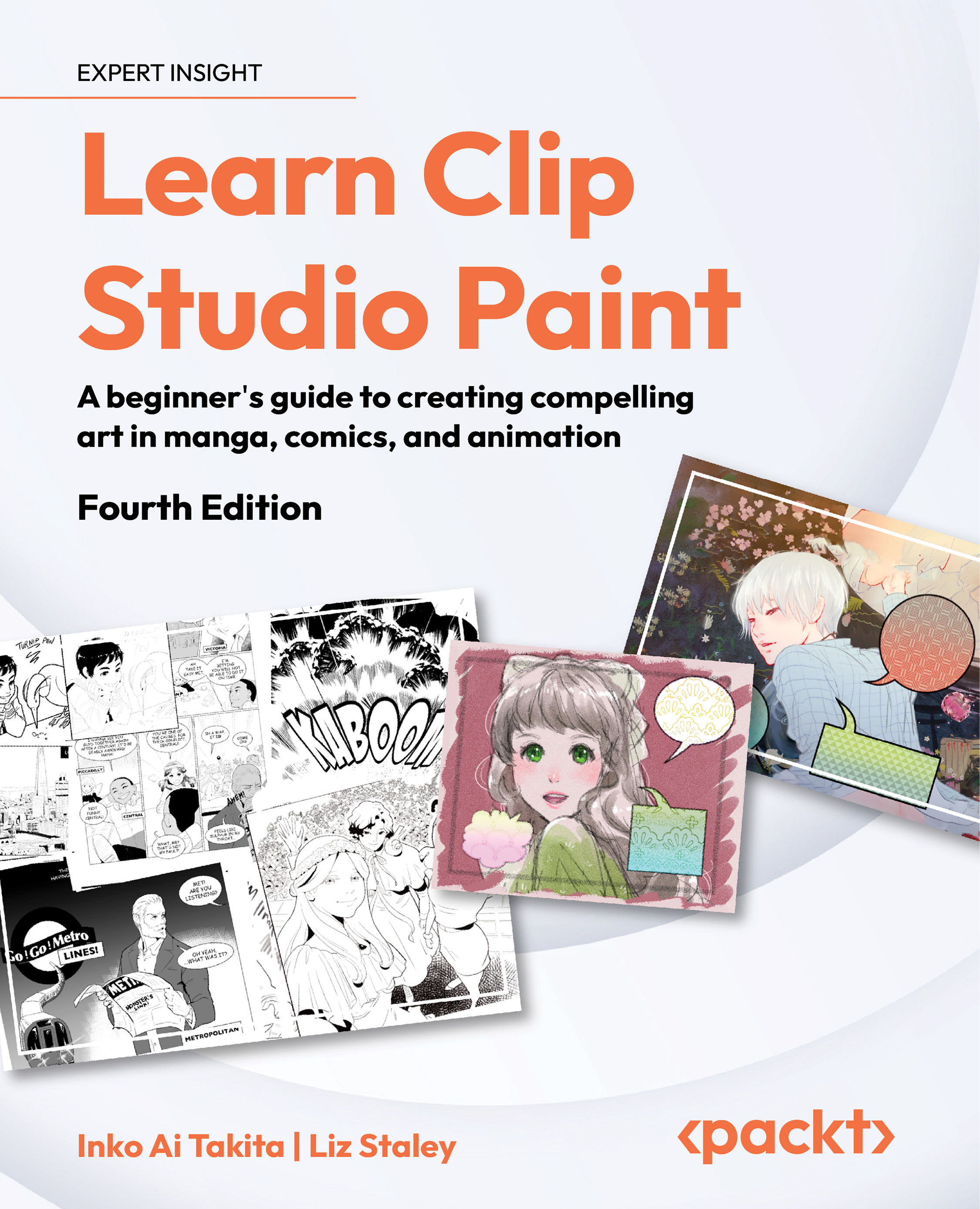Summary
Now that you have seen some actual art created by using Clip Studio Paint, I hope you have a better idea of what tools and functions the program offers. It is fine if you don’t know the exact details of how this is achieved at this point, because you don’t have to be an expert to use them all, but it is always good to know the tools and functions that are available.
You will have also noticed that some analog effects, such as scratching or bleeding, can be made digitally. This will give you the opportunity to illustrate mishaps, smudges, or accidental merges of color, which might add interesting effects to your creations!
If you have some images already scanned onto your device, you can add these effects as an extra bit of detail. It would be great if you could find an effect or two that appeals to you. After reading this chapter, installing the program, and obtaining a graphic tablet, you can ignore the order of the rest of the chapters and jump to a specific chapter that details the techniques you want to learn about.
But, most of all, enjoy Clip Studio Paint!
Join us on Discord!
Read this book alongside other users. Ask questions, provide solutions to other readers, and much more.
Scan the QR code or visit the link to join the community.
https://packt.link/clipstudiopaint


































































